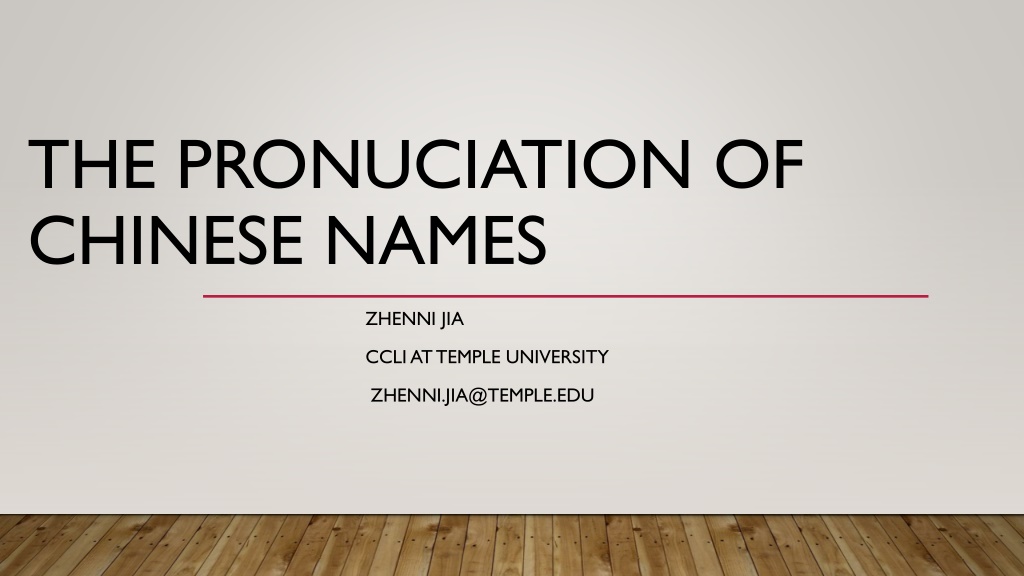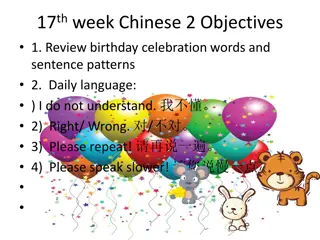Understanding the Cultural Significance of Chinese Names
The pronunciation and cultural significance of Chinese names, including family honor, generational names, and the importance of pronouncing names correctly for respect and cultural understanding. Explore the variations in spelling Chinese names using different Roman letters, the importance of tones in Chinese names, the Pinyin system for Romanization, and the significance of respecting and correctly pronouncing Chinese names. Emphasize the value of cultural sensitivity and awareness in addressing Chinese names.
Download Presentation

Please find below an Image/Link to download the presentation.
The content on the website is provided AS IS for your information and personal use only. It may not be sold, licensed, or shared on other websites without obtaining consent from the author. Download presentation by click this link. If you encounter any issues during the download, it is possible that the publisher has removed the file from their server.
E N D
Presentation Transcript
THE PRONUCIATION OF CHINESE NAMES ZHENNI JIA CCLI AT TEMPLE UNIVERSITY ZHENNI.JIA@TEMPLE.EDU
CULTURAL SIGNIFICANCE OF CHINESE NAME Family name---Family Honor Given name ----reflecting the parents' aspirations for their child Generational Names: Some families have a tradition of giving certain characters to each generation's names. This practice can strengthen family ties and maintain continuity in naming conventions. Jia Zhenni Zhenni Jia
PRONOUNCING NAME CORRECTLY IS A SIGN OF RESPECT AND CULTURAL UNDERSTANDING Da Jian Tai Jian healthy eunuch of the palace
NAME SPELLED USING DIFFERENT ROMAN LETTERS The same Chinese name is sometimes spelled using different Roman letters in Mainland China, Hong Kong and Taiwan Zhang It is spelled Zhang in mainland China, Cheung in Hong Kong, and Chang in Taiwan. Jia Gu / Ka Koo / Gu
TONES IN CHINESE NAMES Chinese names, like words, rely on tones. Correct tones are crucial for conveying the intended meaning. Mispronouncing tones can lead to misunderstandings. wen 4 wen3
PINYIN SYSTEM The Pinyin system uses Romanization to represent Chinese characters. Pinyin includes initials (consonants) and finals (vowels). Learning Pinyin is the foundation of mastering name pronunciation. Review common initials in Pinyin: b, p, m, f, d, t, n, l, g, k, h, j, q, x, zh, ch, sh, r. Explore common finals in Pinyin: a, o, e, i, u, , ai, ei, ui, ao, ou, ie, e, er.
CONCLUSION Emphasize the importance of respecting and correctly pronouncing Chinese names.
Thank You! It is my appreciat for the every experts' participation and interest.























